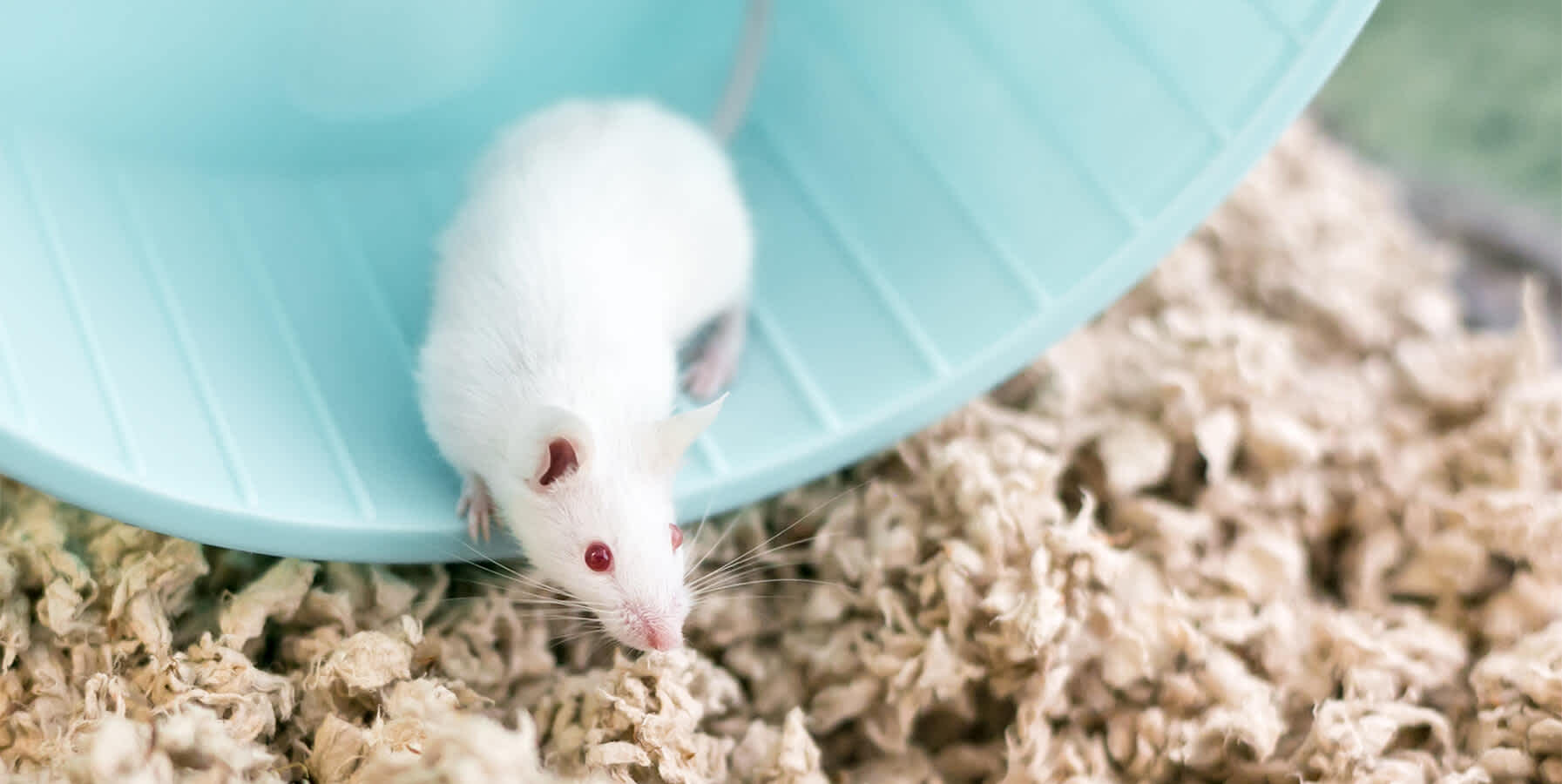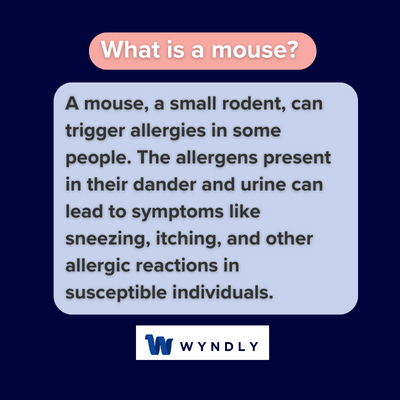Rodent allergies are more common than many think. They can cause a range of symptoms.
Understanding these allergies is essential for managing your health and environment. Have you ever wondered why your eyes itch or your nose runs around rodents? It could be an allergy. Rodent allergies can cause a variety of symptoms, from mild irritation to severe reactions.
Knowing the symptoms and causes can help you avoid triggers and seek proper treatment. In this post, we will explore the signs of rodent allergies and what causes them. This knowledge can help you manage your environment better and protect your health. Stay with us to learn more about this important topic.
Also Read

Credit: www.nycallergydoctor.com
Introduction To Rodent Allergies
Rodent allergies are more common than many people realize. These allergies can cause a range of symptoms. Understanding the causes and signs can help manage and reduce their impact.
What Are Rodent Allergies?
Rodent allergies occur when the immune system reacts to proteins found in rodent urine, saliva, or skin flakes. These proteins can become airborne and trigger allergic reactions.
Common sources of rodent allergens include:
- Pet rodents like hamsters and guinea pigs.
- Wild rodents like mice and rats.
Symptoms can vary from mild to severe. They may include sneezing, itchy eyes, and skin rashes.
Prevalence And Impact
Rodent allergies affect many people worldwide. They are particularly common in urban areas. These allergies can significantly impact quality of life.
| Region | Prevalence |
|---|---|
| Urban Areas | High |
| Rural Areas | Medium |
People with other allergies or asthma are more likely to be affected. Reducing exposure to rodents can help manage symptoms.
Common Symptoms
Rodent allergies can cause various symptoms that affect daily life. Recognizing these common symptoms can help identify an allergy early. Let’s look at the most frequent signs.
Respiratory Issues
Respiratory issues are a common sign of rodent allergies. These symptoms affect breathing and can cause discomfort. Here are some of the main respiratory issues:
- Runny Nose: This can be persistent and annoying.
- Sneezing: Frequent sneezing can disrupt daily activities.
- Coughing: This can be dry or produce mucus.
- Shortness of Breath: Breathing may become difficult, especially during physical activities.
- Wheezing: A whistling sound when breathing, often linked to asthma.
Skin Reactions
Skin reactions are another common symptom of rodent allergies. These reactions can be uncomfortable and visible. They include:
- Rashes: Red, itchy skin patches that may spread.
- Hives: Raised, red bumps that can appear suddenly.
- Itching: Persistent itching that can lead to scratching and skin damage.
- Swelling: Swollen areas on the skin, often around the eyes or lips.
Recognizing these symptoms can help manage and treat rodent allergies effectively. If you notice any of these signs, consider consulting a healthcare professional.
Causes Of Rodent Allergies
Rodent allergies stem from exposure to rodent dander, urine, and saliva. Symptoms include sneezing, itchy eyes, and skin rashes. Reducing contact with rodents can help alleviate these allergic reactions.
Rodent allergies are common. They can cause many uncomfortable symptoms. Understanding the causes helps in managing these allergies better.Rodent Dander
Rodent dander consists of tiny flakes of skin. These flakes become airborne. They mix with dust and can easily be inhaled. This can trigger an allergic reaction. Dander is light. It can spread throughout your home. Even if the rodent is not in the room.Urine And Saliva Proteins
Rodents also release allergens through their urine and saliva. These proteins dry and turn into fine particles. They become airborne and can be inhaled. These allergens are strong. They can cause a reaction even in small amounts. Cleaning rodent cages can increase exposure. This can lead to more severe allergic symptoms. “`
Credit: www.everlywell.com
Types Of Rodents Causing Allergies
Rodent allergies can trigger uncomfortable symptoms. Understanding which rodents cause allergies is essential. Here, we explore the common culprits.
Mice
Mice are small but potent allergens. Their dander, urine, and saliva can cause allergic reactions. These allergens easily become airborne. They can spread throughout your home. Watch for signs of mice if you have unexplained allergy symptoms.
Rats
Rats are larger than mice but equally problematic. Rat dander and urine contain proteins that trigger allergies. These allergens can stick to surfaces and become airborne. Regular cleaning can help reduce exposure. Be aware of rat infestations if you have allergies.
Hamsters And Gerbils
Hamsters and gerbils are popular pets. Yet, they can cause allergies too. Their fur, dander, and saliva are common allergens. These particles can circulate in the air. Regular cage cleaning and good hygiene can help. Consider allergy-friendly pets if symptoms persist.
Diagnosis Of Rodent Allergies
Rodent allergies can cause significant discomfort. Understanding the diagnosis process is vital. Identifying the allergy early can prevent severe reactions. The diagnosis involves several tests and observations.
Allergy Testing Methods
Doctors use various tests to diagnose rodent allergies. Skin prick tests are common. A small amount of allergen is placed on the skin. The skin is then pricked with a needle. If a red bump appears, the person is allergic.
Blood tests are another method. These tests measure the immune system’s response to rodents. High levels of certain antibodies indicate an allergy. Blood tests are useful for people with skin conditions.
Identifying Triggers
Identifying triggers is crucial. Keeping a diary of symptoms helps. Note when symptoms occur and what activities were done. This helps pinpoint exposure to rodents.
Home inspections can also identify triggers. Look for signs of rodent activity. Droppings, nests, and chewed materials are common indicators. Reducing rodent presence can alleviate symptoms.
Consulting an allergist can provide personalized advice. An allergist can help identify specific triggers. They can also offer strategies to avoid exposure. Managing rodent allergies improves quality of life.
Treatment Options
Rodent allergies can cause discomfort and disrupt daily life. Understanding treatment options can help manage symptoms effectively. Below, we explore various treatment methods to provide relief from rodent allergies.
Medications
Medications can help manage rodent allergy symptoms. Antihistamines are commonly used. They reduce sneezing, itching, and runny nose. Nasal corticosteroids are another option. They reduce inflammation in the nasal passages.
Decongestants can provide short-term relief. They reduce nasal congestion. Always consult a doctor before starting any medication. Prescription medications may be necessary for severe cases.
Immunotherapy
Immunotherapy is another treatment option. It involves regular exposure to small amounts of allergens. This can reduce sensitivity over time.
There are two main types of immunotherapy. Allergy shots are the most common. Sublingual tablets are also available. These are placed under the tongue. Both methods aim to build immunity gradually.
Consult an allergist to see if immunotherapy is right for you. It may take several months to see results. Persistence is key for long-term relief.
Prevention Strategies
Rodent allergies can cause a lot of discomfort. It’s important to take steps to prevent exposure. Prevention strategies include effective rodent control and making adjustments to your home environment. These steps can help reduce allergic reactions and improve your overall health.
Rodent Control
Controlling the rodent population in your home is crucial. Start by sealing any cracks or holes in walls, floors, and foundations. These are common entry points for rodents. Use traps and bait stations to catch any rodents that have already entered your home. Store food in airtight containers and keep your kitchen clean. This removes food sources that attract rodents. Regularly check for signs of rodents, such as droppings or gnaw marks. Early detection can prevent a full-blown infestation.
Home Environment Adjustments
Make adjustments to your home environment to reduce allergens. Use air purifiers with HEPA filters to trap rodent dander. Vacuum carpets and upholstery regularly using a vacuum with a HEPA filter. Wash bedding and curtains frequently in hot water to kill any allergens. Keep humidity levels low. High humidity can attract rodents and dust mites. Consider using dehumidifiers in damp areas like basements.
Declutter your home. Rodents thrive in cluttered spaces. Store items in sealed plastic bins instead of cardboard boxes. This can help reduce potential hiding spots for rodents. Always dispose of garbage promptly and keep trash cans tightly covered.

Credit: www.wyndly.com
Living With Rodent Allergies
Living with rodent allergies can be challenging. The symptoms can disrupt daily life. Allergies can cause sneezing, itching, and other discomforts. But there are ways to manage and live with these allergies.
Coping Mechanisms
Identify and avoid triggers. Keep your home clean and rodent-free. Use air purifiers to reduce allergens. Always wash hands after handling pets or cleaning.
Medications can help manage symptoms. Over-the-counter antihistamines can reduce itching and sneezing. Consult a doctor for more severe cases. They may prescribe stronger medications.
Maintain a healthy lifestyle. Eat balanced meals and exercise regularly. A strong immune system can help combat allergies.
Support And Resources
Join support groups. Talk to others who have rodent allergies. Share experiences and advice. Online forums and local groups can offer support.
Educate yourself. Read books and articles about rodent allergies. Stay updated on new treatments and coping strategies.
Consult professionals. Doctors and allergists can provide valuable advice. They can help create a personalized plan for managing your allergies.
Frequently Asked Questions
What Are Common Symptoms Of Rodent Allergies?
Common symptoms of rodent allergies include sneezing, runny nose, itchy eyes, and skin rashes. Additionally, some people may experience coughing, wheezing, or shortness of breath.
How Are Rodent Allergies Diagnosed?
Rodent allergies are diagnosed through medical history, physical examination, and allergy testing. Skin prick tests and blood tests are commonly used.
Can Rodent Allergies Trigger Asthma?
Yes, rodent allergies can trigger asthma symptoms. Exposure to rodent allergens can cause asthma attacks or worsen existing asthma.
What Rodents Cause Allergies?
Common rodents that cause allergies include mice, rats, hamsters, and guinea pigs. Their dander, urine, and saliva are allergens.
Conclusion
Rodent allergies can disrupt daily life. Recognizing symptoms is crucial for management. Common signs include sneezing, itchy eyes, and skin rashes. Identifying the cause helps in finding effective solutions. Reducing exposure to rodents and maintaining cleanliness can ease symptoms. Consulting a doctor may provide further relief.
Take steps today to live allergy-free. Stay informed, stay healthy.




